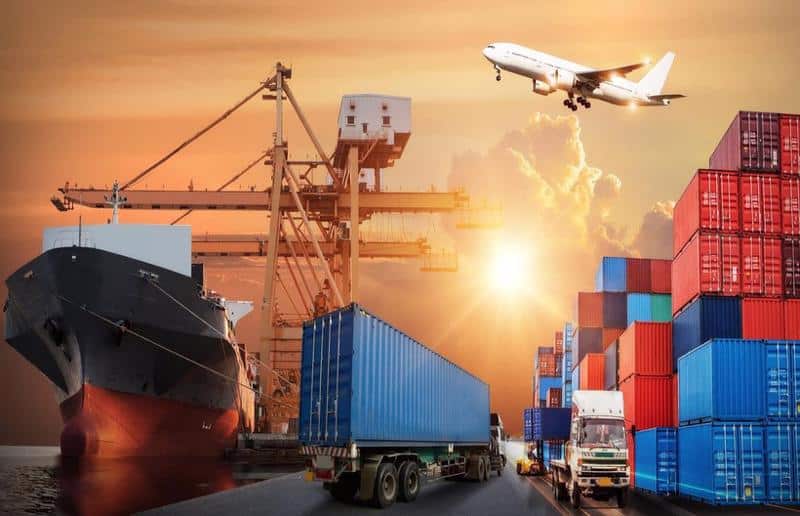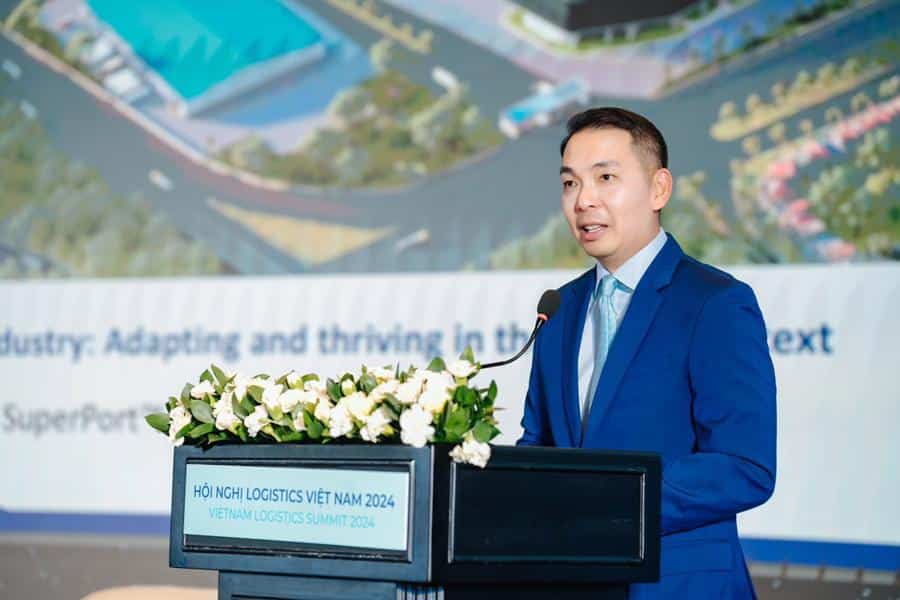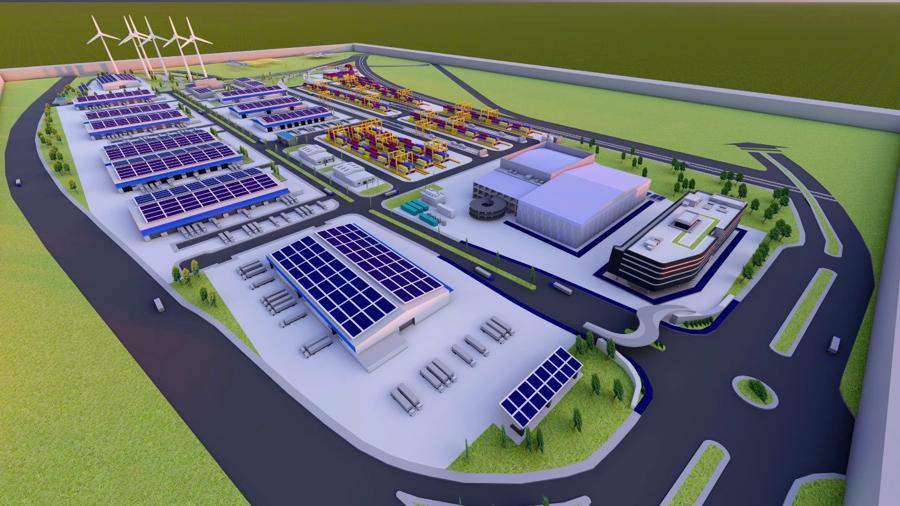
Logistics has long been the lifeblood of global trade. From the rudimentary systems of ancient civilizations like Mesopotamia and Rome – where goods moved on animal-drawn carts and ships – to the game-changing steam power and railroads of the Industrial Revolution, logistics continues to evolve. In the 20th century, the introduction of containerization and digital technologies like real-time tracking revolutionized supply chains, setting the stage for the hyper-connected, fast-moving logistics systems we rely on today.
Today, we are witnessing another logistics revolution driven by the integration of multimodal systems, digital transformation, and a global race towards net-zero. Vietnam, once a quiet player in this space, is emerging as a critical node in global supply chains especially in Southeast Asia, where it serves as a critical point of transport due to its strategic location.
Strengthening capabilities and skills
Situated between Northeast Asia’s manufacturing hubs and ASEAN’s fast-growing markets, Vietnam’s geographic location provides a distinct strategic advantage. As companies diversify supply chains away from China, Vietnam stands out as a viable link in the global trade network. This strategic position underscores the necessity for developing a comprehensive multimodal logistics system to enhance its geographical advantage.
To remain competitive, Vietnam must accelerate improvements in both logistics infrastructure and workforce development. The country’s logistics sector is, however, grappling with significant hurdles. It ranks 43rd in the World Bank’s 2023 Logistics Performance Index, falling behind regional peers like Singapore (first), Thailand (34th), and China (19th). The country grapples with capacity limitations and a sluggish pace of digital transformation. With rankings of 53rd in logistics competence and 47th in infrastructure, the need for targeted reforms is pressing if Vietnam is to enhance its competitiveness in the region’s evolving logistics landscape.
Key priorities include enhancing vocational training to raise workforce efficiency and making sustainable infrastructure investments to align with global standards. Without a cohesive strategy that addresses these gaps – focusing on talent, digitalization, and sustainability – Vietnam risks falling behind.

Multimodal connectivity allows greater accessibility
To rise in the global logistics rankings, Vietnam must prioritize developing a fully-integrated multimodal system that coordinates road, rail, air, and waterways. This integration will minimize bottlenecks and reduce time loss at transshipment points, positioning Vietnam as a key player in regional and global supply chains.
Enhanced multimodal connectivity, which combines road, rail, air, and sea transport into a cohesive logistics network, is key to improving efficiency and cutting costs. Norway offers a compelling example: its integration of rail and sea transport has streamlined the flow of goods across Europe, slashing delivery times and carbon emissions. For Vietnam, adopting a similar approach is critical to boosting its Logistics Performance Index and staying competitive with regional heavyweights like Singapore and Thailand.
Digital transformation as a core enabler of change

While multimodal connectivity is essential, technology is the engine that will drive Vietnam’s logistics sector forward. Logistics providers must accelerate digital transformation to improve efficiency and reduce costs.
AI-powered forecasting, real-time tracking, and automation are no longer luxuries – they are necessities for survival in a competitive global market. Vietnam SuperPort is investing in advanced digital solutions to optimize supply chains. From AI-driven cargo tracking to automated inventory management, its aim is to transform logistics into a seamless, data-driven ecosystem. For Vietnam’s logistics industry to thrive, widespread adoption of digital tools is crucial.
Sustainability is essential to stay competitive
As global regulations tighten around carbon emissions, sustainability has become a core business requirement rather than an option. Between 2022 and 2023, the number of executives globally who understand the business case for sustainability tripled. Deloitte reports that one in four consumers are prepared to pay more for sustainable products and packaging. Companies are increasingly seeking greener supply chains, and Vietnam must meet this demand to remain competitive.
By aligning with global sustainability standards, Vietnam’s logistics sector can attract top-tier multinationals and position itself as a leader in green logistics. Sustainability, combined with cost-effective logistics, will be a key differentiator as Vietnam competes with infrastructure centers around Asia, such as Singapore’s PSA, which has announced a supply chain hub due for completion in 2027.

Vietnam will face increasing competition from established logistics hubs like Singapore and Thailand as well as rising players such as Cambodia and Laos. Should it fail to keep up, it risks losing its competitive edge, missing out on critical foreign investment, and becoming a less-appealing option for multinationals seeking efficient and sustainable supply chains. But the country has a distinct opportunity to leap ahead of its rivals. With its proximity to China, lower operational costs, and growing FDI in infrastructure, it is uniquely positioned to capitalize on shifting global supply chains.
To achieve this, Vietnam must quickly enhance its logistics capabilities. Success hinges on effectively integrating multimodal connectivity, digitalization, and sustainable practices. By focusing on these key areas, it can provide agile, future-ready logistics solutions, establishing itself as a strategic partner for manufacturers aiming to optimize and diversify their supply chains. Regardless of shifts in geopolitical dynamics, especially concerning US – China relations, Vietnam’s logistics sector should be prepared to adapt, ensuring resilience in an increasingly complex international landscape.
Vietnam’s strategic location, coupled with investments in multimodal systems, digital transformation, and sustainability, positions it to become a global logistics leader. To seize this opportunity, it must act swiftly to close infrastructure gaps, accelerate digital adoption, and integrate green practices into logistics operations. By leveraging its geographic strengths and embracing innovation, Vietnam can emerge as a dominant force in global trade – connecting East and Southeast Asia with the world – and driving economic growth while establishing itself as a logistics powerhouse.
Yap Kwong Weng – CEO of Vietnam SuperPort™
Sunil Nambiar – Senior Manager of Group Sustainability at YCH Group
Mr. Yap Kwong Weng is currently the CEO of Vietnam SuperPort™, a joint venture between Singapore’s YCH Group and Vietnam’s T&T Group. He was head of transformation at Sembcorp Development and held executive positions at KPMG and EY.
Mr. Sunil Nambiar is Senior Manager of Group Sustainability at the YCH Group, Singapore’s largest homegrown logistics company with operations in over 100 cities across Asia. He was a management consultant at EY-Parthenon, a leading global strategy firm, before entering the logistics sector.




